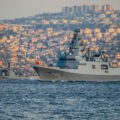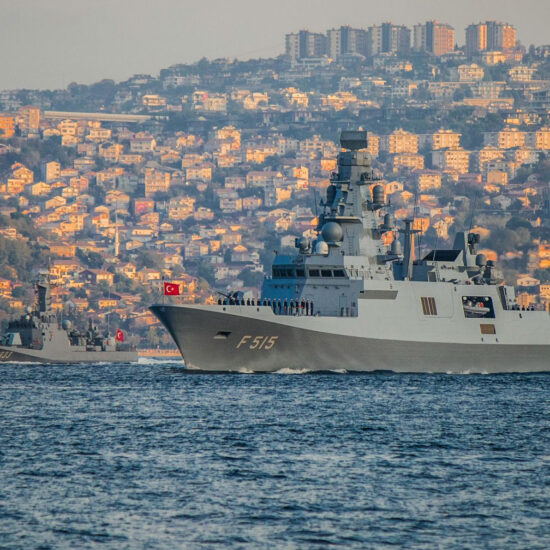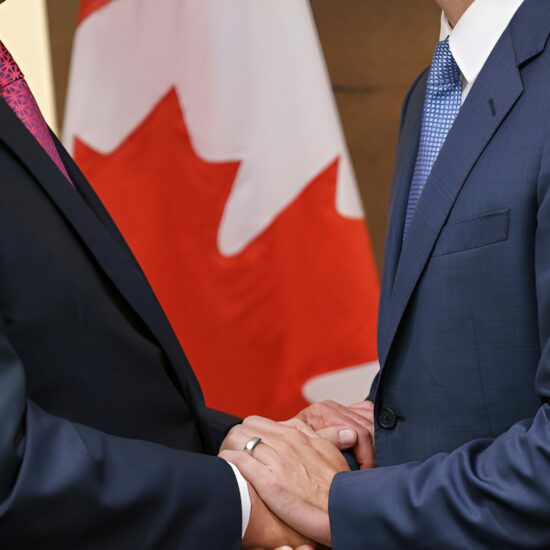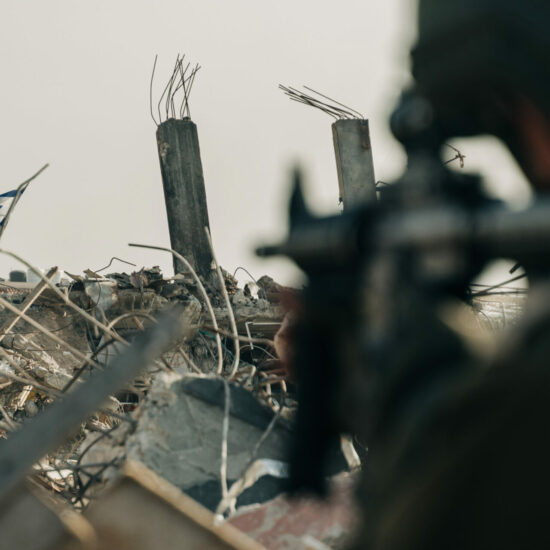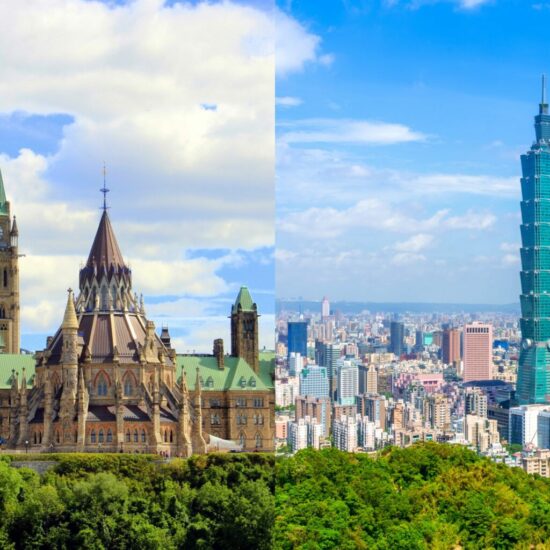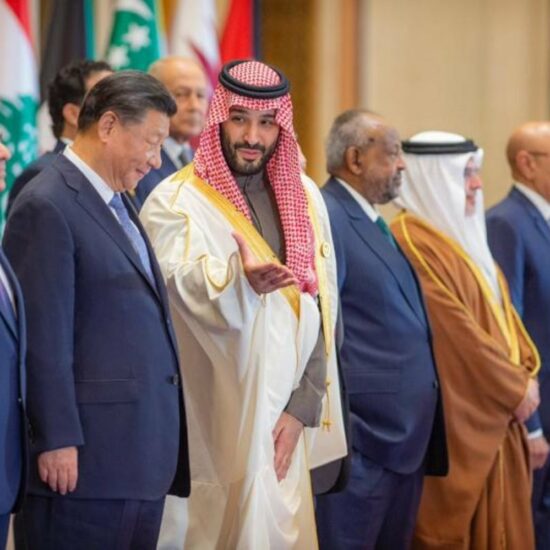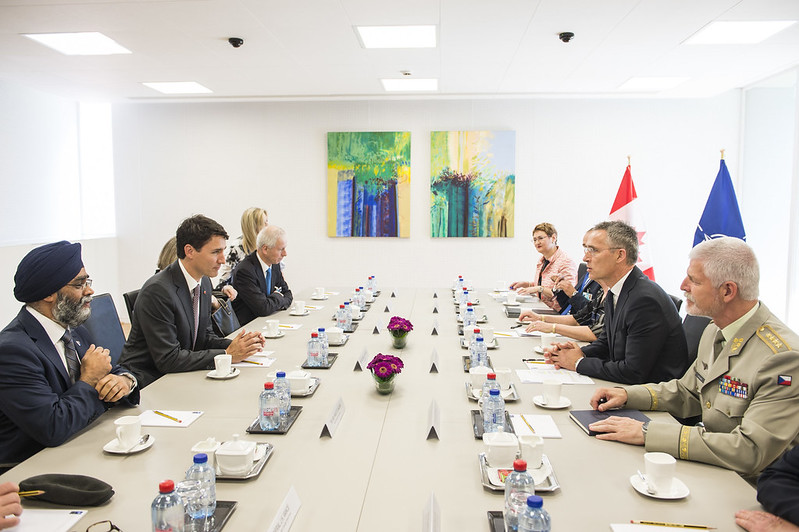
Image credit: NATO
By Nizar Mohamad and Alex Moldovan
Amid an international order that faces pressing challenges, Canada must forge its own distinct identity based on a consistently principled approach to international affairs.
2020 has been a turbulent year on the global stage. Its first major event – the assassination of top Iranian general Qassem Soleimani by the US military – set the tone for the year to come. Three days into January, President Donald Trump had effectively shattered the rules of the game in the Middle East and massively escalated tensions in the world’s most volatile geopolitical arena.
2020 has also given us a US-endorsed Israeli-Palestinian ‘peace deal’ that utterly excludes the Palestinians, underscored by repeated calls for annexation by Israel’s leadership. Conflict and displacement continued unabated in Syria and Yemen, civil unrest intensified in Iraq, and Lebanon entered a new phase of hardship in the wake of the Beirut port explosions.
In addition, COVID-19 has cost close to a million lives, stalled the global economy, and altered the nature of social relations. The deadly pandemic has also exposed governments across the industrialized world as massively unprepared to respond to a crisis of such proportions. This was exacerbated by a failure in global leadership: As the death toll mounted, President Trump politicized the turmoil by downplaying the seriousness of the virus, blaming China, and boycotting the World Health Organization. In the wake of a novel global calamity, internationally coordinated efforts to fight the virus were undermined so that the Trump administration could evade responsibility to its domestic constituency, feeding xenophobic narratives to energize impressionable right-wing voters.
Meanwhile, the cries for fair and inclusive citizenship were ignored or repressed globally, including in the US, where Black Lives Matters protests were met with violence by a militarized police force.
Amid an international order that faces pressing challenges, Canada must forge its own distinct identity based on a consistently principled approach to international affairs. On the international stage, its leadership must be active, and its commitment to democratic values must be accompanied by a vocal critique of states that stand out as serial violators.
Canadian credibility depends on its consistency. But consistency in normative principles should be incorporated into a wider foreign policy based on consistent strategic principles. This will require developing a coherent long-term strategy that synthesizes purpose with realism, including a clear articulation of what it wishes to achieve in the world beyond short-term programmatic endeavours. For example, Canada’s Middle East Engagement Strategy has committed billions in assistance to humanitarian, development, and peace and stabilization projects. This includes its “Feminist Foreign Policy,” which, among other things, oversees Canadian personnel in providing gender training and community-led policing to places like Jordan, Iraq, and the occupied Palestinian Territories.
But these programs must comprise a means to an end, and not simply represent rosy initiatives detached from a general strategy. They must be part of an overarching framework for a more assertive international presence. Advancing gender equality while largely remaining silent in the face of states that institutionally oppress women, for example, contradicts Canada’s stated foreign policy objectives.
Similarly, Canada’s official positions must be fair, balanced, and reflect the will of the international community. Criticism of the Palestinian leadership should be met with diplomatic changes towards its relations with Israel, which has openly and intransigently denied Palestinians their right to self-determination for decades. Its condemnation of Iran’s regional adventurism should also be extended to other antagonistic players in the Middle East, which have collectively played an equally destructive role in the neighbourhood since the onset of the 2011 Arab uprisings.
Additionally, Canada’s stark – albeit, selective – criticism of states that violate human rights is undercut by its profit from the proliferation of weapons sales, especially when the recipients are actively involved in armed conflicts. These actions cannot reasonably coexist with the ostensible Canadian emphasis on export controls.
Its selective criticism is further undermined by the selective promotion of democratic values. In 2015, Canada voted against a Russian-sponsored UN resolution aimed at combating neo-Nazism and racism. Though the resolution was clearly a diplomatic maneuver by Moscow intended to target Ukrainian factions opposing its agenda in the country – such as the national guard’s ultra-nationalist Azov Battalion – Canada’s contrarian stance in the conflict effectively entailed shielding fascists.
The Canadian capacity-building mission in Kiev claims to have trained 1,129 National Guardsmen. Unlike the US, however, it does not seem to have developed any comprehensive vetting processes to avoid training Azov members, despite the Department of National Defence’s statement emphasizing the importance of distancing the mission from the battalion. Uniformed Canadian soldiers have also appeared on Azov’s blogs, and sites affiliated with members of Canada’s Ukrainian community have boasted that Canadian Armed Forces (CAF) personnel are training the outfit to meet NATO standards.
In 2017, Canada became a key organizer of the Lima group, a bloc of Latin American states which has sought to oust Venezuelan President Nicolas Maduro on the grounds that his regime is authoritarian. However, Canada later ‘supported’ the 2019 coup that overthrew Bolivian President Evo Morales immediately after he had won democratic elections. Ottawa’s position in Latin America and Ukraine showcased a political calculus – not a policy based on consistent moral principles.
Moreover, its failure to take a strong, independent stance on the Trump administration’s erratic foreign policy decisions puts the CAF in harm’s way while disrupting Canadian interests. For example, Washington’s escalation in Iraq jeopardized the security of Canadian troops, who continue to face a heightened risk of being caught in retaliatory attacks from militias aligned to the Islamic Revolutionary Guard Corps. It also complicated Canadian operations in Iraq, as Baghdad’s politicians initially voted to expel all foreign troops. Canada’s military deployment is part of two multinational missions that are crucial in helping the Iraqi Security Forces combat the threat of a Daesh resurgence.
In addition to jeopardizing its strategic and security interests, Canadian acquiescence to America’s recklessness negatively implicates Ottawa in the eyes of the world. Its failure to publicly challenge US policies leads to a reality in which Canada will be perceived by the international community not as a champion of the norms governing the rules-based international order, but as a junior partner in an alliance of states continually undermined by the unpredictability of US imperatives. In order to project its influence on the world stage, Canada must depart from this duplicitous and incoherent foreign policy to one that is grounded: Respect for diversity and inclusion at home should be matched with an unwavering commitment to international law. This will also require explicitly distancing itself from Washington when it displaces international institutions and acts unilaterally.
This departure will entail a meaningful reassessment of Canada’s foreign policy priorities. In an increasingly leaderless global arena, Canada could gain to diversify away from its political-security relationship with the US and embrace a pivot towards its EU and NATO partners. This will be a challenging task, given their levels of economic and defence integration. However, it is one that is necessary. So long as Canada remains on its current path, it will be seen as an enabler of a paradigm of American rejectionism. Canada’s global image – built on decades of devotion to peacekeeping, multilateralism, and moderation – will lose its aggregated value as an instrument of soft power capable of facilitating Canadian partnerships. Canada risks losing its most marketable competitive advantage – its reputation. As a middle power in a system undergoing a shift towards multipolarity, it needs all the instruments at its disposal.
Canada’s public opposition to the illegal 2003 Iraq War bolstered Canadian credibility globally. It is time for Canada to reclaim that legacy. A commitment to sovereignty, human rights, and the rule of law is the foundation of our global system. But it is also crucial to Canadian branding. Consistency is key to Canadian foreign policy.
Nizar Mohamad is a Middle East analyst based in Toronto, Canada, who specializes in Syrian politics and security. His work has appeared in TRT World, The New Arab, and Mondoweiss. He is also co-authoring a chapter in a forthcoming book on Canadian foreign policy in the Middle East.
Alex Moldovan is a Ph.D. student in political science at York University. Though formerly focused on South-South development finance, his current research examines equity-seeking social movements and defensive violence, particularly in Latin America. His work can be found in Globalizations and OpeDemocracy.

